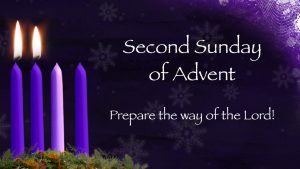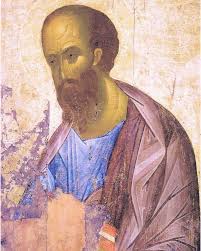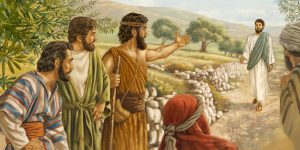 Over the next few days in our Advent journey the church invites us to consider John the Baptist’s relationship to Jesus. John appears in the tradition of the great prophets of Israel, preaching repentance and reform. In fact, the description of John found in this reading is reminiscent of the description of the prophet Elijah. John words are not directed only to the Pharisees and Sadducees. John’s message is a pointed call to repentance aimed in our direction: “Repent, for the kingdom of heaven is at hand!”
Over the next few days in our Advent journey the church invites us to consider John the Baptist’s relationship to Jesus. John appears in the tradition of the great prophets of Israel, preaching repentance and reform. In fact, the description of John found in this reading is reminiscent of the description of the prophet Elijah. John words are not directed only to the Pharisees and Sadducees. John’s message is a pointed call to repentance aimed in our direction: “Repent, for the kingdom of heaven is at hand!”
John makes very clear that his relationship to the Messiah is one of service and subservience: “The one who is coming after me is mightier than I. I am not worthy to carry his sandals.” The highlight of John’s ministry was the fantastic success he enjoyed way out in the wilderness. This man does not care what people think. And his style worked! He certainly was no fashion plate, with his camel hair clothing, leather sandals and the cincture around his waist. His diet was simple: locusts and wild honey. This note must have been important to the evangelists, or it wouldn’t be included in their Gospels. It is symbolic. You can’t wear anything more simple in the way of clothing, or eat a more basic diet. John’s ministry, and our inheritance, is one of very simple beginnings.
But what does it say to us? What is God, the Divine architect, designing and constructing in our lives? When our life’s valley is filled in and the road made smooth, the crooked straight, will we be ready to “see the Son of Man coming in a cloud?” As we approach the off-ramp of life, will we be attuned to the divine whisper that is familiar from our daily Lectio? Will we hear clearly the voice of the One crying out to us? Will we stand erect and call to others: “Look! The salvation of our God is at hand?”
What will it take to raise our weariness to consciousness, and conscientious attention to those with whom we live? What will it take to crack the ridged set in our ways? How many hosing-downs does it take to quiet a hot temper or a sharp tongue? How can we remove our spiritual cataracts so we can see the bigger picture? What kind of corrective lens do we need to protect our eyes from worldliness? What strength of binoculars will it take to zero in on the faulty behavior we what to eradicate? What kind of safe-guards will we need to keep us on the straight and narrow? Is our prayer life regular enough, strong enough, secure enough to protect us from inevitable temptation?
No matter how we might like to think that we’ve got it all together, sooner or later we all need to have a maintenance check-up and a little divine repair job. When a hurtful word slips through our lips or cares and daily concerns erode our promised Lectio time; when we are battered by life’s challenges, God promises to strengthen the areas of weakness that plague us. Our God promises to fix what’s broken in our lives.
Paul reminds us in the Second Reading: “Whatever was written previously was written for our instruction, that by endurance and by encouragement you may think in harmony with one another … that with one accord in one voice you may glorify God.” John’s message prepared the way for Jesus in the first century. We are called to be prophets in today’s world. Each of us has a mission to communicate Christ’s message of hope, freedom, and peace; to help people fill in their valleys and make their rough paths more smooth. “Prepare the way of the Lord, make straight his paths: all shall see the salvation of our God!”
~by Sister Roberta Bailey, OSB











